Are you a subcontractor looking to understand the ins and outs of subcontracting policies? Navigating these guidelines can seem overwhelming, but it's essential for ensuring a smooth working relationship with your general contractor. In this article, we'll break down key components of subcontracting policies, making it easier for you to stay compliant and protect your interests. So, let's dive in and explore what you need to know!

Clear Scope of Work
A clear scope of work (SOW) is essential for effective subcontracting policies, especially in industries such as construction and IT services. The SOW outlines specific tasks, deliverables, timelines, and responsibilities associated with a project, ensuring all parties understand expectations. For example, a construction SOW might detail tasks such as site preparation, material procurement, and installation phases, with deadlines aligned to critical project milestones. Moreover, incorporating metrics for success, such as quality standards and compliance with safety regulations, adds clarity. Having a well-defined SOW can prevent disputes, enhance communication, and establish a strong foundation for collaborative efforts between contractors and subcontractors, ultimately leading to successful project completion.
Compliance with Regulations
Compliance with regulations is crucial for subcontractors operating in various industries, including construction and manufacturing sectors. Subcontractors must adhere to local, state, and federal regulations (such as OSHA guidelines for safety standards) to ensure legal operation and promote workplace safety. Compliance audits (regular assessments of adherence to regulations) play a vital role in identifying non-conformance issues, enhancing accountability. Additionally, subcontractors must follow industry-specific standards, such as building codes in urban areas like New York City or environmental regulations impacting operations in sensitive ecosystems such as the Everglades. Effective training programs for subcontracted employees are necessary to ensure understanding and implementation of these regulations, minimizing risks associated with non-compliance, including fines or project delays.
Quality Assurance Standards
Subcontracting policies focused on quality assurance standards are essential for ensuring consistent performance and compliance. These policies should outline specific quality metrics to be met by subcontractors, such as adherence to ISO 9001 standards, which provide guidelines for establishing an effective quality management system. Regular audits of subcontractors should be mandated, evaluating their processes against defined benchmarks, ensuring they consistently deliver high-grade materials or services. Furthermore, clear documentation of quality expectations, including detailed specifications and timelines, should be established to facilitate accountability. Key performance indicators (KPIs), such as defect rates and client satisfaction scores, should also be tracked and reported to continually assess subcontractor performance, fostering a culture of excellence and continuous improvement across the supply chain.
Termination and Exit Strategies
Termination and exit strategies in subcontractor agreements require clear guidelines to avoid disputes and ensure smooth transitions. Establishing written procedures involving notice periods is essential, typically spanning 30 to 60 days, to allow for project reassignment or completion. Include conditions for termination, such as failure to meet project deadlines or non-compliance with safety regulations. Address financial implications, detailing how outstanding payments will be settled, including any retainage or penalties applicable in the event of breach. Additionally, outline responsibilities for returning proprietary materials and documenting project status at termination. Implementing a formal exit interview process can provide valuable insights into subcontractor performance and help in optimizing future partnerships.
Confidentiality and Data Protection
Subcontractor agreement mandates strict adherence to confidentiality standards and data protection regulations. Compliance with the General Data Protection Regulation (GDPR) ensures that personal data is processed lawfully, transparently, and securely. Subcontractors must implement robust measures to safeguard sensitive information, such as financial records and client details, preventing unauthorized access. Each subcontractor's responsibilities include reporting data breaches promptly, with emphasis on the 72-hour notification window mandated by GDPR. Additionally, all subcontracted operations must adhere to the established internal policies of the primary contractor, ensuring that confidentiality agreements are signed and understood by all parties involved in the project chain. Clear guidelines on data handling, storage, and destruction protocols must be detailed to maintain integrity and trust.

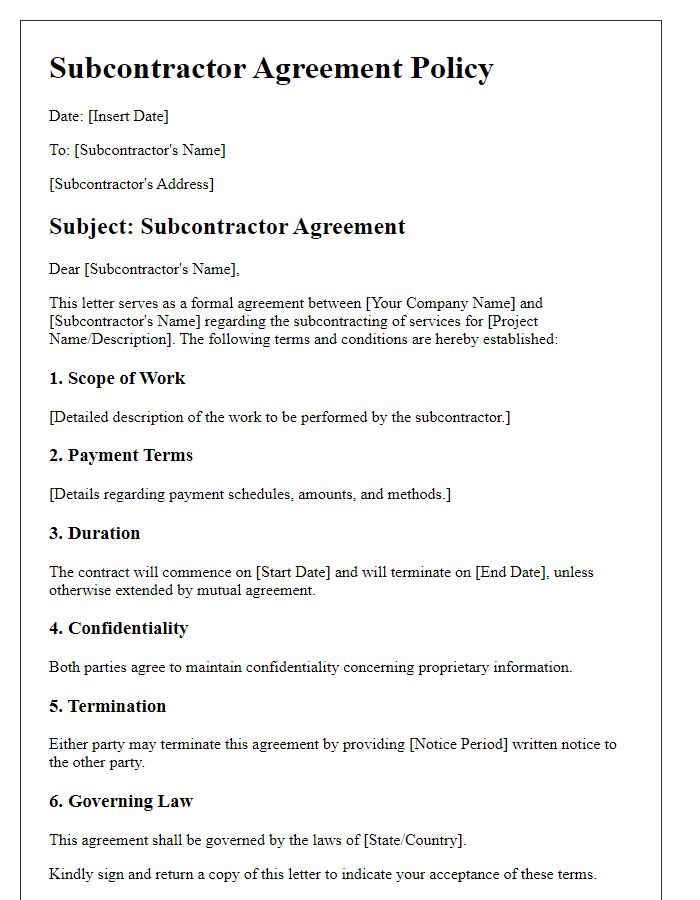
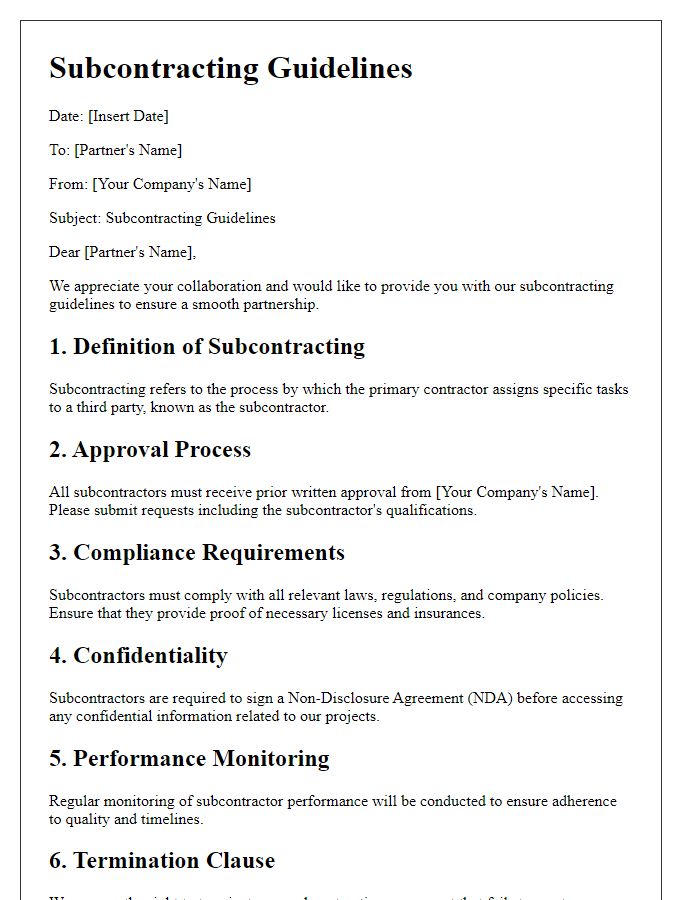
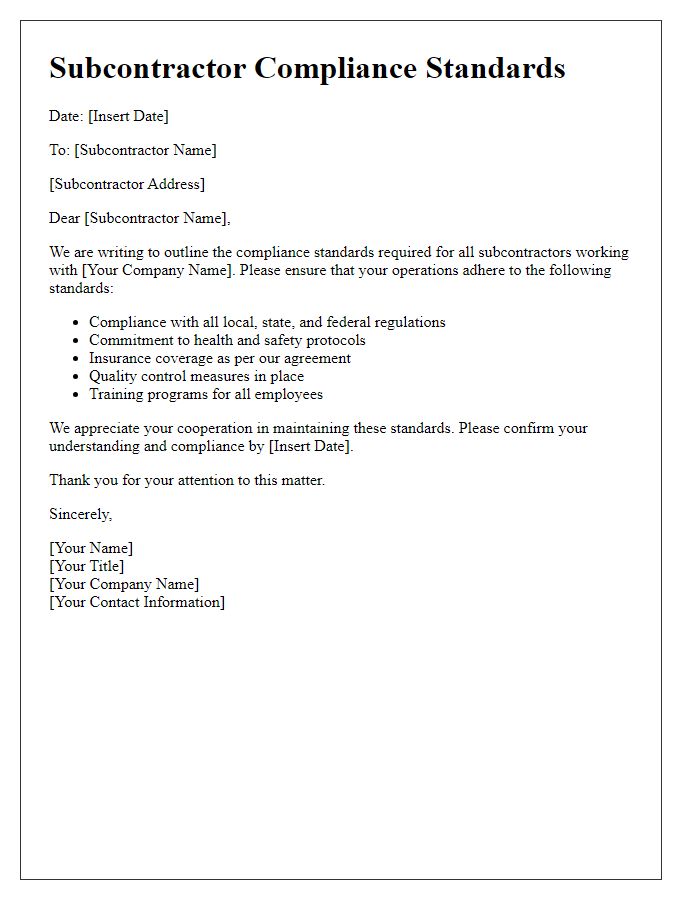
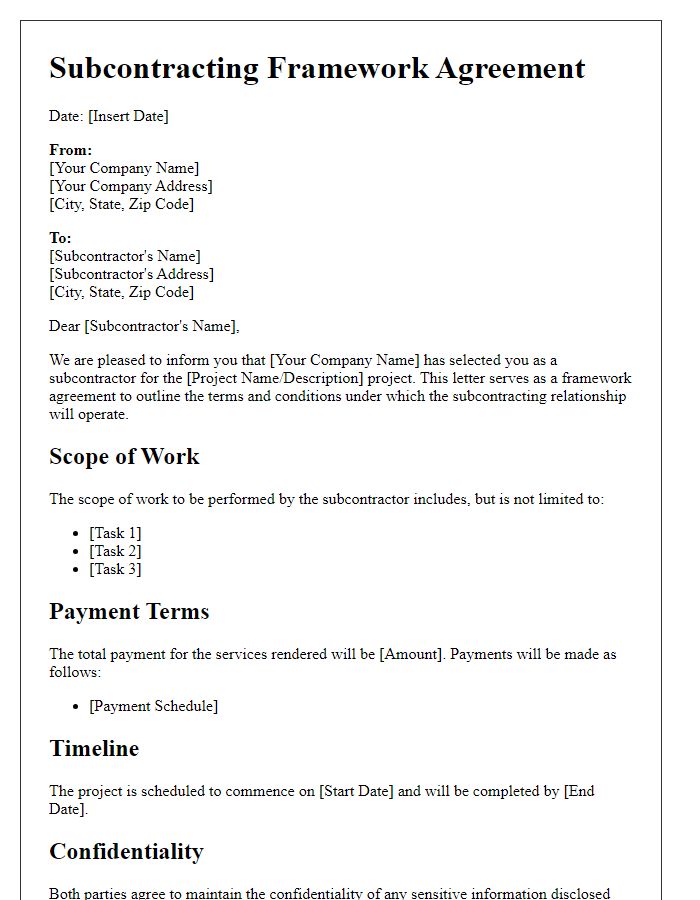
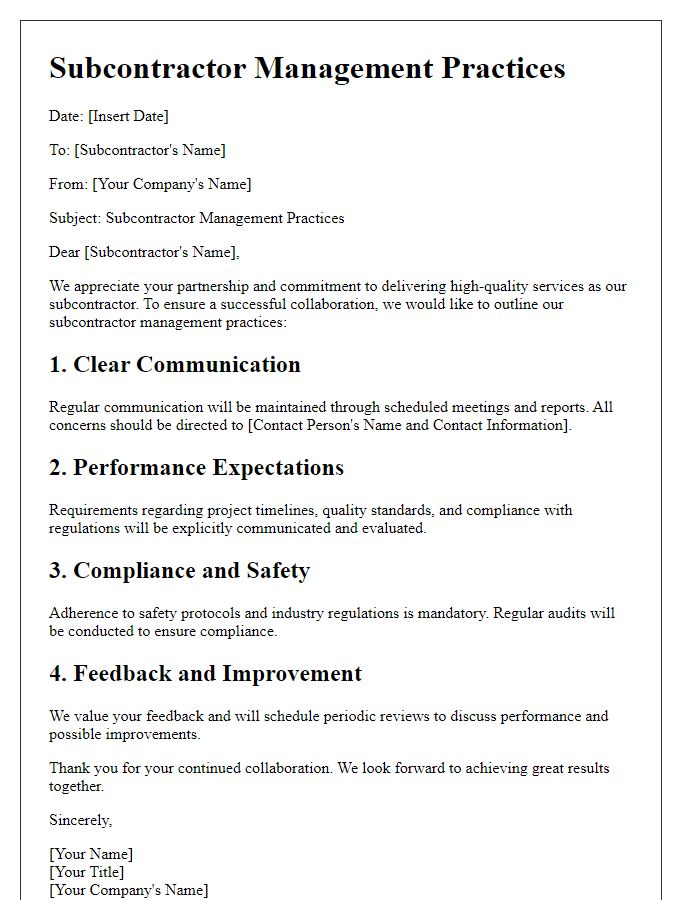
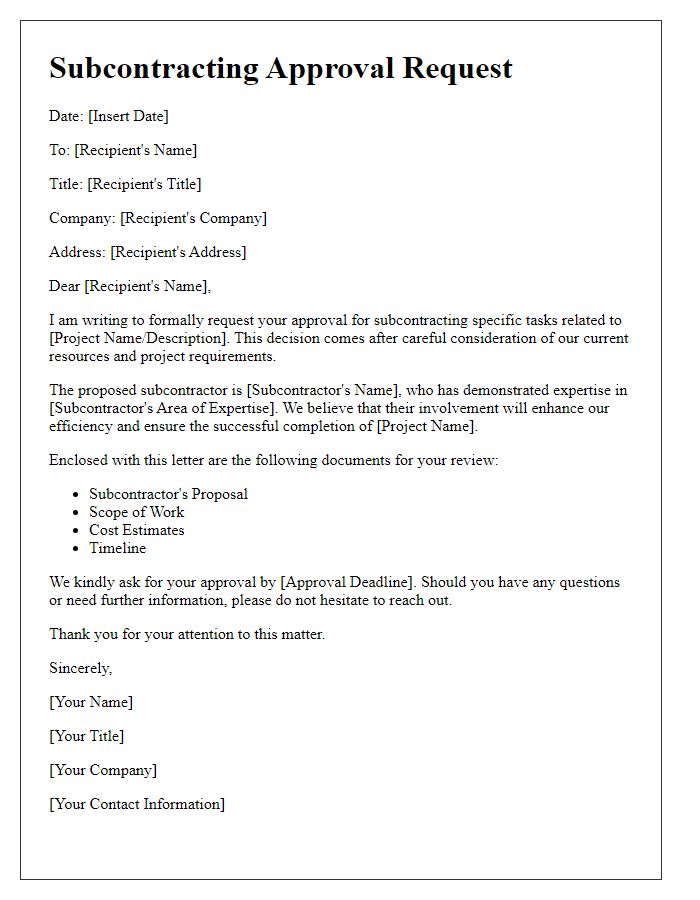
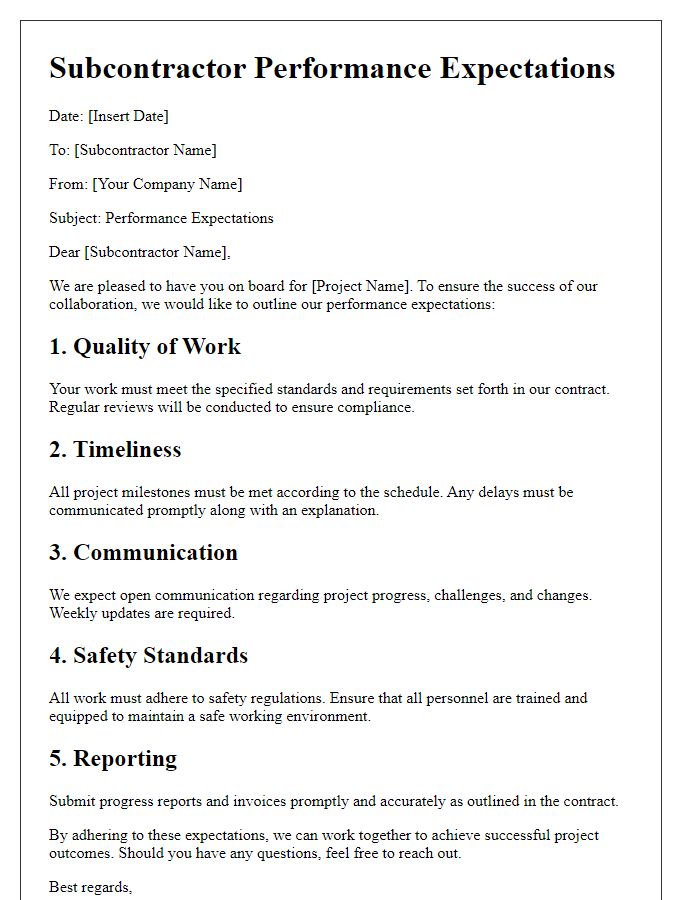
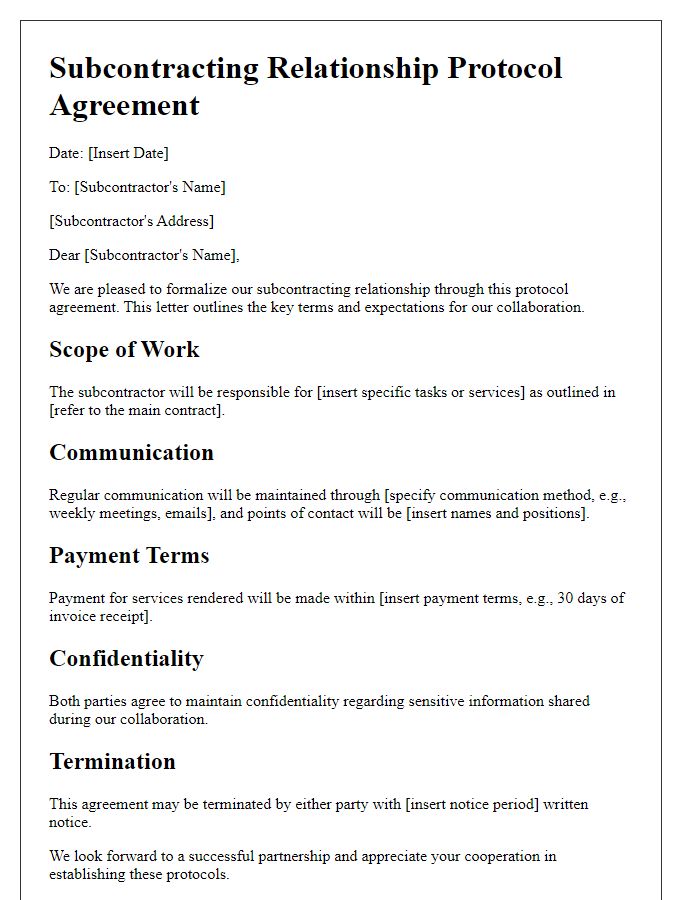
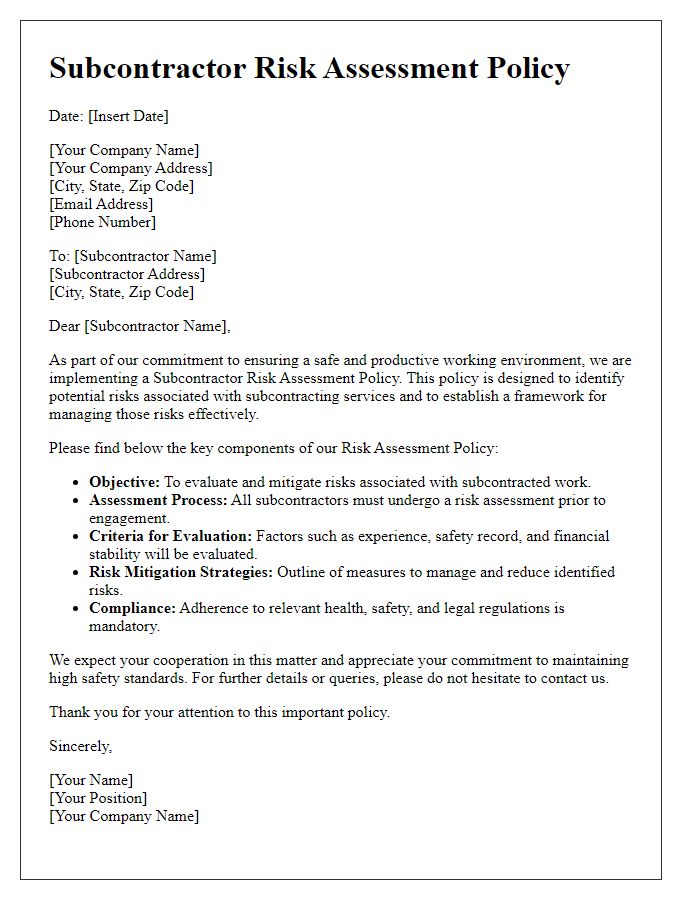
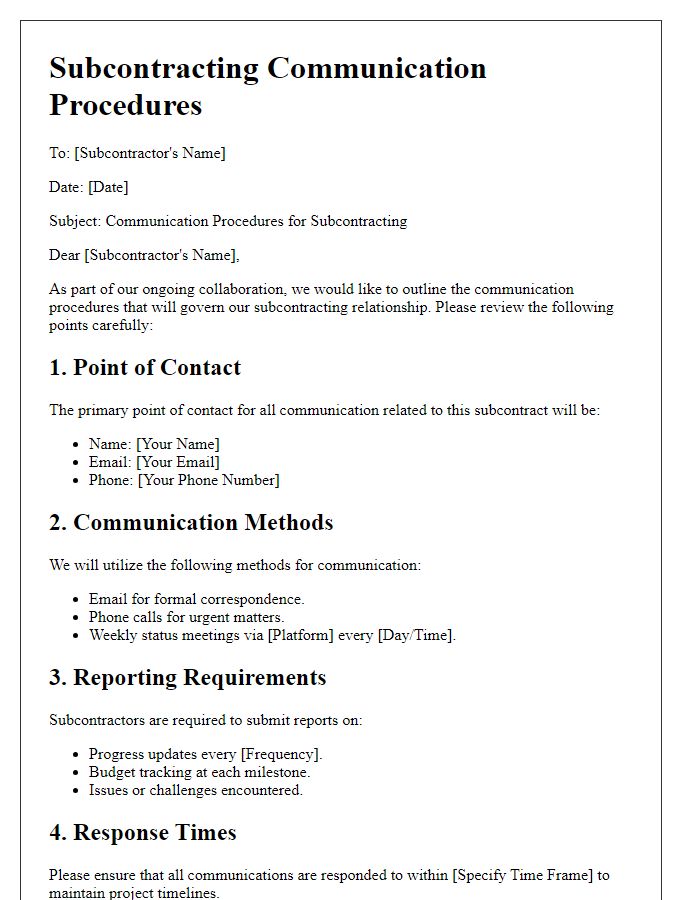


Comments